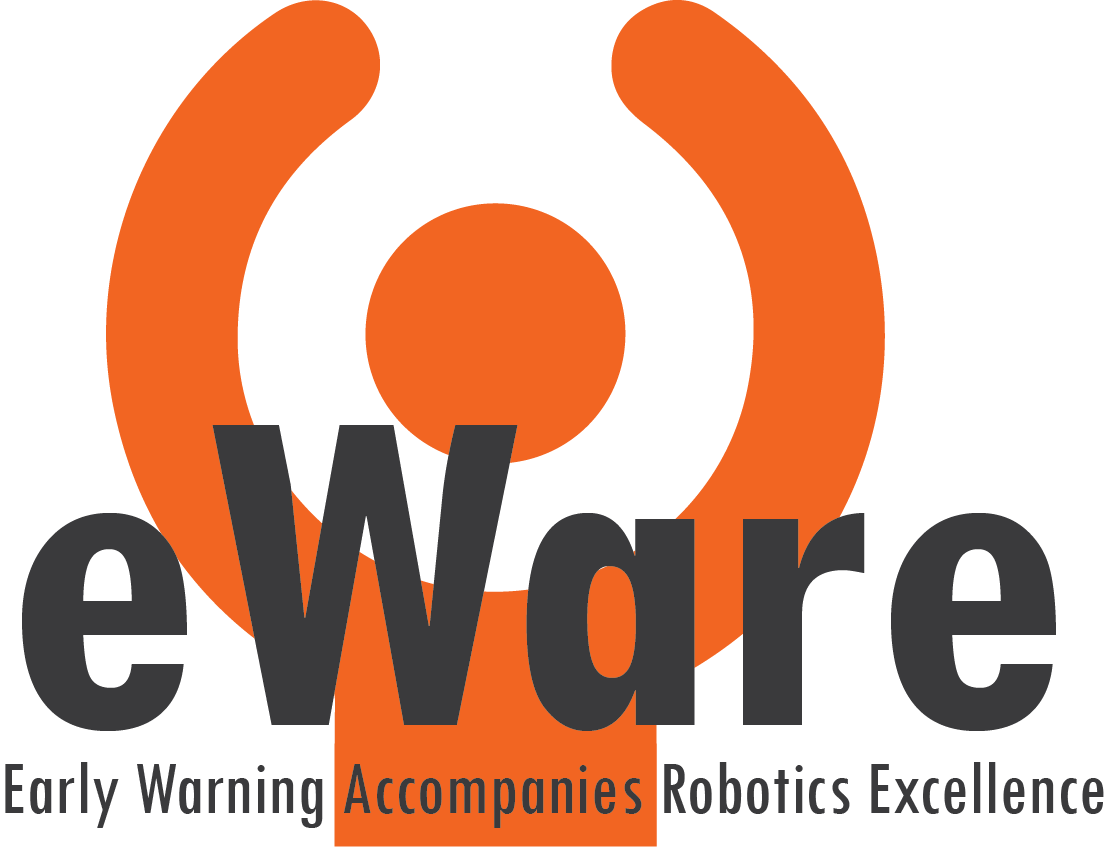The AAL project eWare “Early Warning (by lifestyle monitoring) Accompanies Robotics Excellence” is focused on improving the lifestyle of people with dementia and their caregivers considering the extreme impact of this disease in the world. Caring for a person with dementia (PwD) can be a significant personal and emotional challenge for informal carers. Informal caregivers frequently report experiencing high levels of stress, mental and physical fatigue, social withdrawal and sleeplessness. Several technologies and services have been developed to support the care for people with dementia and in eWare we integrate lifestyle monitoring with social robotics.
Objectives
Lifestyle monitoring can reduce caregiver’s distress and thereby extend the period that the informal caregiver can sustain the care and support needs for the PwD. With lifestyle monitoring, carers have insight in the daily pattern of a person with dementia and thereby communication between both can be enhanced. Nevertheless, lifestyle monitoring is unidirectional without the PwD in the communication loop. To support integrated person centred care, we add social robotics to lifestyle monitoring in the European eWare project to support bidirectional communication. Furthermore, the lifestyle monitoring sensors add context awareness to the social robot and the social robot provides an interface between the PwD and the (in)formal carer. With increasing context awareness, the social robot can provide context relevant suggestions to the PwD.
The main project goals of eWare are focused on outcomes:
- reduce subjective stress of the informal carers and the patient community,
- enhance quality of life of the informal carer and person with dementia,
- support communication and information between formal and informal careers.
The technology and services used in eWare consist of existing lifestyle monitoring or life pattern monitoring connected and integrated with novel support robots.
The eWare eco-system is characterised by the integration of two technologies: the lifestyle monitoring of Sensara (motion sensors and open/close sensors) and the social robotic technology of Tinybots. To realise the eWare eco-system and integrate these technologies, three developments need to take place:
- eWare Cloud that hosts core data
- eWare mobile application for the caregivers
- eWare API enables the Sensara technology and Tinybot technology to interface with the newly developed eWare eco-system.
Expected results and impact
Expected Impact on quality of life For people with dementia
Living an active and meaningful life with support of eWare can initiate activities for the person with dementia, while the formal- and informal carer can monitor the daily activity level and act accordingly. The informal carer can be reassured by the lifestyle monitoring in the house and the communication in such a way that he/she can give the person with dementia more space to life. The communication possibilities will trigger the person with dementia to become active without the necessary involvement of communication with others, and enable people with dementia to stay in contact with others. Lifestyle monitoring provides insight into the short- and long-term life patterns of a person with dementia, whereby it can result in better knowledge of the person’s specific – and eventually unserved – needs and how the formal and informal care can be adjusted accordingly.
Expected Impact on quality of life
For informal and professional carers, eWare will reduce stress and care burden. The goal is to optimise these effects.
Build resilience
The current in use lifestyle monitoring technology can build resilience among informal carers, as shown in practice in several projects across The Netherlands and Italy with people with dementia and their informal carers.
Improve quality, efficiency and effectiveness of care
The improvement of quality, efficiency and effectiveness of the care can be met by early warning for crisis situations (e.g. restlessness during the night, excessive toilet use indicates a possible bladder infection, prolonged inactivity in the kitchen which may indicate decreased food intake, etc.) provided by the lifestyle monitoring.
Expected impact on the market
eWare will contribute to a large(r) use of ICT/technology for people with dementia and their supporting community. Lifestyle monitoring is in use at the target group but in limited numbers. The planned developments in combination with large-scale trials in four countries – varying in geographical location from northern Europe to the south – with varying cultures and care financing systems – brings it a leap further.
We further foresee more European collaboration, including end-users, industry and other stakeholders in the value chain. eWare creates new European cooperation and is fully aware of the need for the European dimension, in particular in respect to creating a sustainable business model that can be applied across Europe. We further expect savings for the social/care system as people with dementia live in their homes for longer, thus delaying the move to institutionalised care. Currently available results show a positive trend that the current in use lifestyle monitoring technology can postpone the nursing home admission, but can also detect possible health problems at an early stage. The planned developments have the goal to strengthen this effect.

